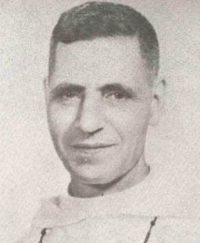The occupation army held a military parade at the Luneta to celebrate the end of military operations in the Philippines. Some 80 tanks, canons of all calibers, anti-aircraft guns mounted on trucks, and motorized infantry men paraded through Burgos Avenue. The din was deafening.
Fifty planes flew overhead in perfect formation, three of which performed aerial acrobatics. There were other displays of military might in other avenues which we did not witness. There was no brass band, unlike in other military parades of the past years, where the brass bands constituted a major attraction.
The districts around the Luneta were made off-limits to traffic, and since early morning, no one could leave Intramuros or Ermita. People were requested to close the windows of higher floors and watch the parade from the sidewalks or from ground floors.
At the Luneta, only invited guests were allowed to enter and view the parade, namely, General Homma and his retinue, the high officials of the army and the government, and some representatives of Allied or neutral governments.
As the gates of the Walled City were closed, people could not go to their respective places of work, nor to the market. We therefore could not buy our supplies for the day. And as we did not want to go on a fast, Fr. Sadaba and myself decided to play mendicants, appealing to the charity of our guests. We jumped over the barrier that separated us, and went to their kitchen, which was ours in the place. With signs—we have been improving our use of the language of the mutes—we made them understand that we had nothing to eat. The cook, a typical representative of his profession—good-natured, corpulent, with wall-sized shoulders and a pair of elephantine biceps—opened their, or better still, our refrigerator and gave us a basketful of eggs, meat, tomatoes and eggplants.
A kitchen aide approached us and, forming a cross with his fingers, asked, “Kristu?”
“Yes, we Kristu,” meaning we were Christians.
He pointed to himself and said, “Kristu.”
“Oh, you Kristu,” we said, and we laughed and nodded our heads in mutual understanding.
“Nagasaki,” he continued.
“You from Nagasaki?” Nagasaki is the center of Catholicism in Japan. He started counting with his fingers, asking how many Christians we were.
We answered, also with our fingers, that we were twelve Christians in that place. The good Japanese appeared well-pleased.
We glanced at their food storeroom and saw that there were basketfuls of fruits and vegetables, sacks of rice and big quantities of meat and fish. We could not help gazing with envy at the big cauldrons overflowing with steaming rice and big chunks of meat, as if in preparation for a big feast.
If only we could understand one another, we and the tenants could be of mutual assistance to each other. They could help us materially and we could help them spiritually. We could see that they were eager to converse with us. But in spite of their gesticulations and their practice in the art of mimicry, we still find ourselves at a loss.
We just found out that these soldiers are pilots or air cadets, some of whom had taken part in the bombing of Intramuros. Every morning most of them are fetched by magnificent buses, and we imagine that they are taken to an airfield.
They must have been assigned their living quarters in this residential place so that enemy planes may not get to them. Perhaps they do not feel secure within the vicinity of an airfield. We are only hoping that the flying fortresses would not spot them and drop some bombs on our place!
